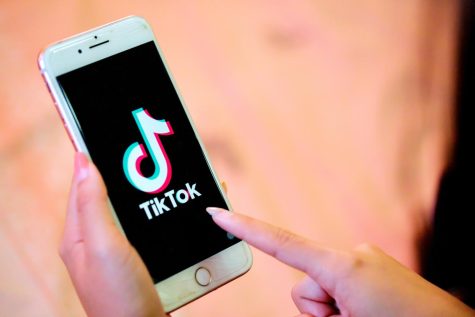More Action Needed Against Digital Privacy Breaches in US
A victim of a cyberattack sitting at his desk after a breach
May 10, 2023
Like most people worldwide, I frequently use social media, with millions of people around me active on apps such as Instagram, Snapchat, TikTok and Twitter. For many of us, social media is the sole means of communication and staying up-to-date with those around us. However, every time a new app is downloaded, private information lands in the hands of strangers.
Given the substantial amount of information put out into the world, action must be taken against digital privacy breaches in the U.S. Although protecting against viruses and malware has become crucial, many companies use personal data provided by users to sell, trade and violate their privacy. Robust digital privacy is essential in light of continual cyberattacks and data breaches.
Cyberattacks are among the most common crimes committed today. Malware, phishing, fake emails, fake calls and identity-based attacks are just a few examples of how cyberattacks happen daily. Cybercrimes have increased each year and become more difficult to stop as technology becomes increasingly predominant in our lives.

Numerous billion-dollar companies have suffered massive data breaches and cyberattacks, resulting in the loss of millions of dollars and personal user information. With new methods developed daily, it has become increasingly challenging to differentiate between genuine and counterfeit.
Innocent hard-working Americans lose thousands of dollars each day due to cyberattacks—money that could have been used for rent, food and supporting their families. Losing such an amount of money can push many to the brink of bankruptcy, threatening their ability to maintain a comfortable standard of living. Given the stakes, immediate action is necessary. Improved privacy measures can help many Americans feel safer sharing their personal information online.
Although cyberattacks represent a direct threat to digital privacy, popular apps and websites can pose similar risks. Some apps take advantage of unsuspecting users by tracking and selling their information. Users often give away their privacy by agreeing to lengthy terms and conditions before using the app.
TikTok, in particular, has come under scrutiny for its extensive information requirements. As a Chinese-based company, TikTok has direct access to American IP addresses, web browsing histories and search histories.

In addition, TikTok allows third parties to track the platform, potentially compromising users’ privacy. Without proper protection from these apps, many individuals risk losing their digital privacy and data.
Information collected from cyberattacks, apps and websites can be sold, redistributed and altered. Private data can be legally and illegally sold worldwide, with a growing market on the dark web. Hackers can find credit card numbers, steal identities, perform actions under someone else’s name, steal usernames and passwords, obtain social security numbers and more.
According to Zia Muhammad on the website Digital Information World, “you can get the totality of an individual’s personal information for just over $1,100, or $1,115 to be precise. This data is so comprehensive that it can be used to forge fake identities under the victim’s name with all things having been considered and taken into account.”
The ease with which one’s identity can be purchased for just a thousand dollars is alarming. More digital privacy measures must be implemented to prevent these actions. Within seconds, one’s information can be redistributed worldwide with malicious intent. It should not be so effortless for data to be transferred and sold.
Many people argue that systems are already in place to protect one’s information, such as incognito mode. However, this is not entirely accurate. The incognito mode still tracks online activity and is susceptible to data breaches. Privacy websites claiming to provide anonymity online often fall short. While they cannot prevent cyberattacks, viruses or malware, they can still offer some protection.
There needs to be a significant change in how we approach digital privacy. American citizens are most affected by digital privacy breaches, with thousands of dollars stolen from people who desperately need it to survive. We should discuss new ways to protect digital privacy whenever we discuss new technology.
By allocating more funds toward digital privacy-protective services, we can more effectively prevent cyberattacks. Changing policies that allow companies to take advantage of personal information, creating strict boundaries for what private information can be used for, and giving users more control are all necessary steps in protecting privacy.
This issue needs to be addressed and at the forefront of change, and it needs to happen now.







